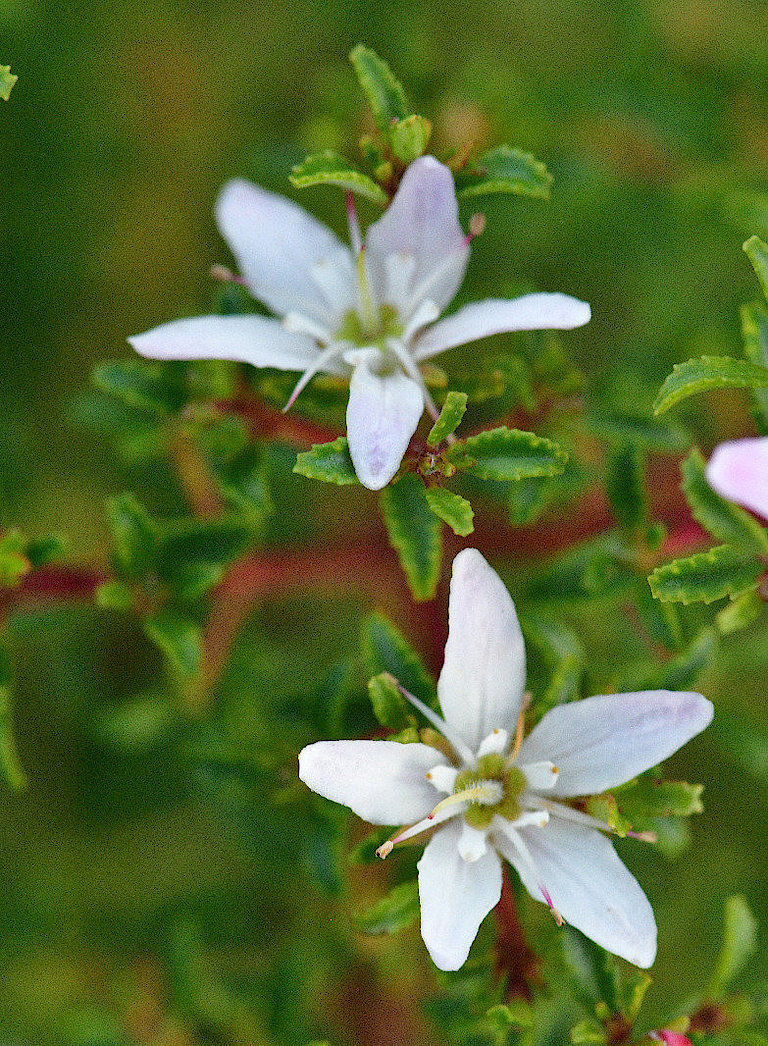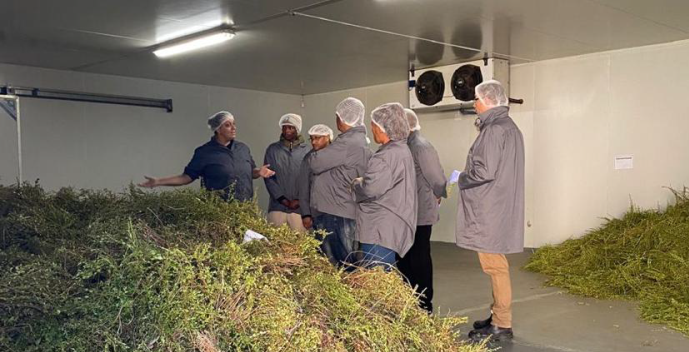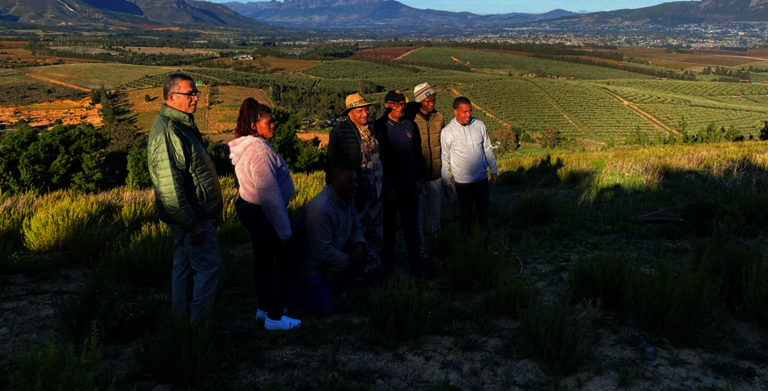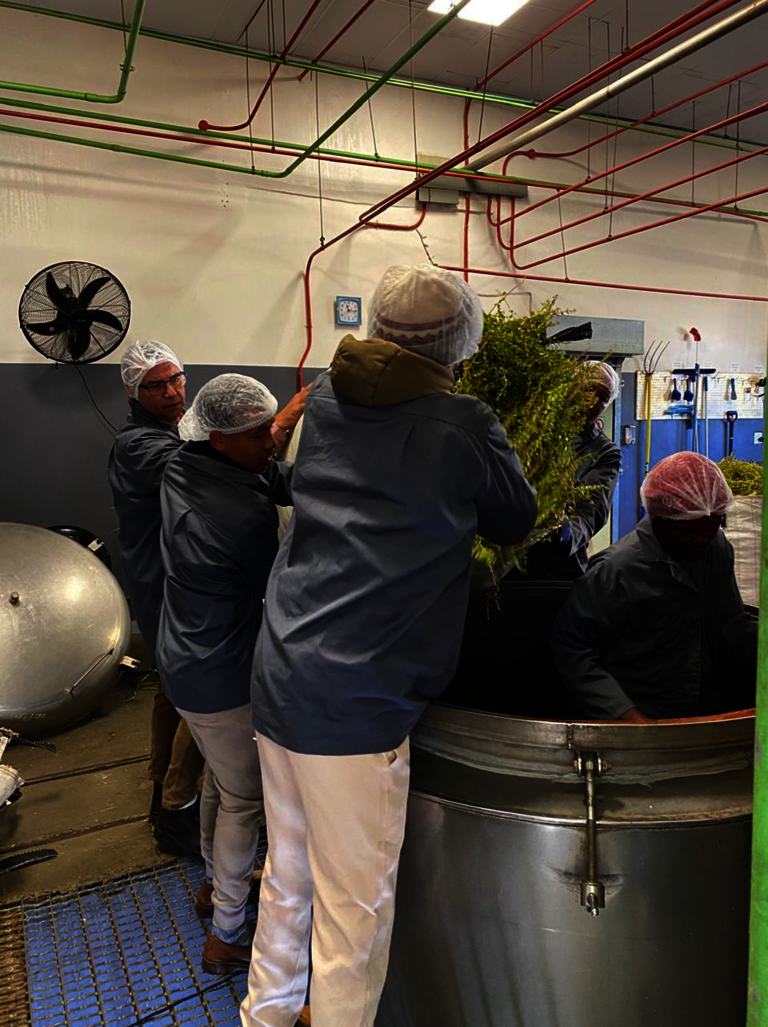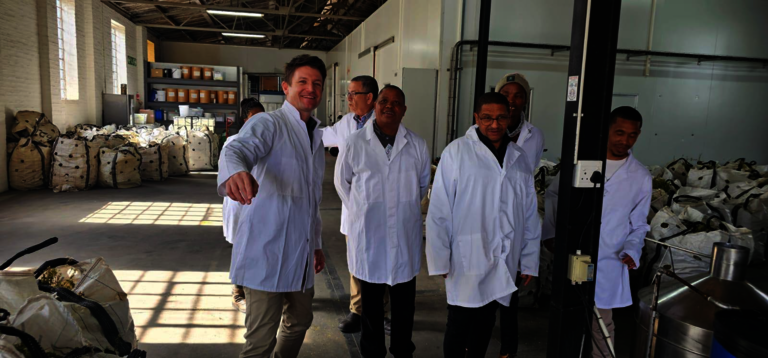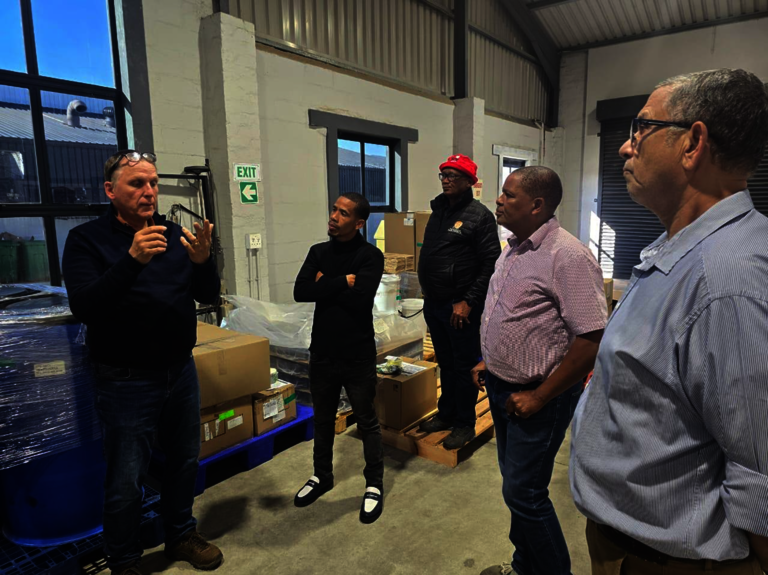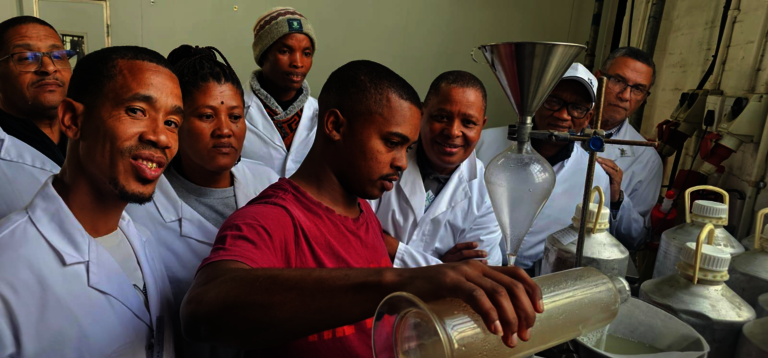In a landmark moment for the Buchu industry and traditional knowledge holders in South Africa, the Buchu Association recently hosted an introductory short course on the Buchu supply chain. This was not just a training program, but an expression of shared knowledge, respect, and the spirit of partnership envisioned under the Nagoya Protocol.
From 5–9 May 2025, a group of San and Khoikhoi participants — including youth and community leaders — took part in an unique, hands-on learning experience that introduced them to the world of Buchu, from cultivation to processing and marketing. The course marks a milestone in the implementation of the Buchu industry’s Access and Benefit Sharing (ABS) Agreement and highlights the power of collaboration between industry, government, and traditional knowledge holders.
A Commitment to Fairness and Respect
South Africa, as a signatory to the Nagoya Protocol on Access and Benefit Sharing, is committed to ensuring that benefits arising from the use of genetic resources are shared fairly and equitably with the indigenous and local communities who hold the traditional knowledge related to those resources. This commitment is embedded in the National Environmental Management: Biodiversity Act (NEMBA) and its Bioprospecting, Access and Benefit Sharing Regulations, which govern the use of indigenous biological resources and traditional knowledge in South Africa.
Guided by these principles, the Buchu Association — representing the interests of the Buchu industry — recognised the historical and cultural contribution of the San and Khoikhoi communities to the Buchu industry. In 2020, the Association and the National Khoi and San Council and the South African San Council entered into benefit-sharing negotiations, supported by the Department of Forestry, Fisheries and the Environment (DFFE).
This led to the signing of a pioneering industry-wide ABS agreement on 14 September 2023, only the second of its kind globally. The agreement reflects a strong partnership, with a shared vision for inclusive development and the sustainable use of Buchu.
What makes the Buchu ABS agreement particularly unique is its dual benefit structure: combining both monetary and non-monetary benefits. While financial contributions are essential, the inclusion of capacity-building, skills transfer, and direct engagement with the industry through initiatives like the short course is where relationships are truly strengthened.
The short course was aimed to introduce traditional knowledge holders to the full Buchu value chain, from field to shelf. It also provided practical skills and opened doors for future collaboration, entrepreneurship, and co-creation.
Learning from the Ground Up
The Buchu Association, with support from their international and national supply chain partners, invested in the development of tailored training materials to support this unique short course. This investment not only made the current program possible but has also laid the groundwork for future courses aimed at building capacity and strengthening relationships between the industry and traditional knowledge holders.
The training program provided participants with a holistic view of the Buchu industry. It was structured to balance theoretical learning and hands-on experience, with mornings dedicated to classroom sessions and afternoons spent in the field and factory environments of three Buchu Association members: Waterfall Health Farms, Puris Natural Aroma Chemicals, and Parceval Pharmaceuticals.
Over the course of the week, participants were introduced to the rich history and significance of Buchu, learning how this indigenous plant has shaped the local industry and continues to hold value in both traditional and commercial applications. They explored cultivation techniques, from soil preparation to sustainable farming practices, gaining insight into how Buchu is grown under varying conditions.
The journey continued with harvesting and post-harvest handling, where the group engaged directly with the delicate processes of selecting, collecting, and preparing Buchu to ensure optimal quality. In the processing sessions, they saw how raw plant material is transformed into high-value products, like essential oils and extracts used in global flavour and fragrance industries.
Participants also spent time learning about the financial and market dynamics of the Buchu trade, including how products are priced, packaged, and exported. To round out the experience, the course included basic business skills training, empowering attendees with practical tools such as budgeting, record-keeping, and understanding supply chain roles — crucial skills for community enterprise development and participation in value chains.
The course provided added information to the communities in various areas and also brought potential business opportunities to the attention of participants. The implementation of the course demonstrated a new and positive way of partnership between the industry and the communities. It opened the mindset of traditional knowledge holders to see that there is opportunity not only to be beneficiaries, but also to participate in the value chain and add value to products.
The National Khoi and San Council was inspired by the course and even created their own short film about the experience, which can be viewed on their YouTube channel. The course also has potential for much-needed youth development, and if connected to formal training institutions, it could open opportunities for Khoikhoi and San youth while contributing to addressing unemployment among the youth.
This training experience, enriched by multilingual materials and real-world exposure, reflects the shared commitment of the Buchu industry and its partners to inclusive growth, knowledge-sharing, and long-term collaboration.
Reflections from the TK Holders
Participants included leaders from the San and Khoikhoi Councils, as well as youth members from traditional knowledge holder communities. Their reflections speak volumes about the impact of the experience:
Collin Louw, the chairperson of the San Council of South Africa shared:
“Thanks to everyone in the industry who made this possible — the accommodation, transport, and the food. Thank you to the members and to those who worked behind the scenes, and last but not least, a big thumbs up to our facilitator. He was flexible and made sure no one felt like they were just stuck in a classroom. You were all great!”
Frans Kraalshoek, part of the leadership of the National Khoi and San Council added:
“Thank you for this week. It was an excellent opportunity for us as communities. I hope this program will now reach more youth who show interest.”
Antonia Vaalbooi, a traditional knowledge holder from the San communities reflected:
“I want to extend my sincere thanks for the insightful and engaging training session. It was a truly valuable experience. I learnt so much, especially about business skills and harvesting. The supportive environment meant a lot. Thank you for your time, expertise, and dedication.”
Heartfelt Thanks to the Partners
The course would not have been possible without the leadership of Raoul du Toit, the program facilitator. His people-centred, flexible approach allowed the training to meet participants where they were — both literally and figuratively — and created an engaging space for growth. “A big and heartfelt thank you to our wonderful facilitator Raoul,” said the Buchu Association. “Your knowledge, experience, and people-focused approach truly made this course the special and valuable experience it was for all involved.”
The Buchu Association also expressed sincere gratitude to the value chain partners and funders who made the development of this course possible:
- International Organisation of the Flavour Industry (IOFI)
- The International Fragrance Association (IFRA)
- South African Association of the Flavour & Fragrance Industry (SAAFFI)
- GIZ BioInnovation Africa Project
“We appreciate your commitment to capacity building and sustainable development,” said the Association. “Your support enable knowledge and resources that will empower communities, strengthen industry knowledge, and support inclusive growth. Thank you for investing in our industry and in our future.”
Looking Ahead
This course was just the first step. By bringing traditional knowledge holders into the fields and factories at the heart of the industry, the Buchu Association is fostering not only compliance with the Nagoya Protocol, but something deeper: a genuine partnership rooted in recognition, empowerment, and shared prosperity. As Stanley Peterson, the vice chairperson of the National Khoi and San Council and the Khoi-Khoi Peoples Biodiversity Trust, put it, “This was a historic, productive week.” And indeed, it was. One that marks the beginning of many more.
